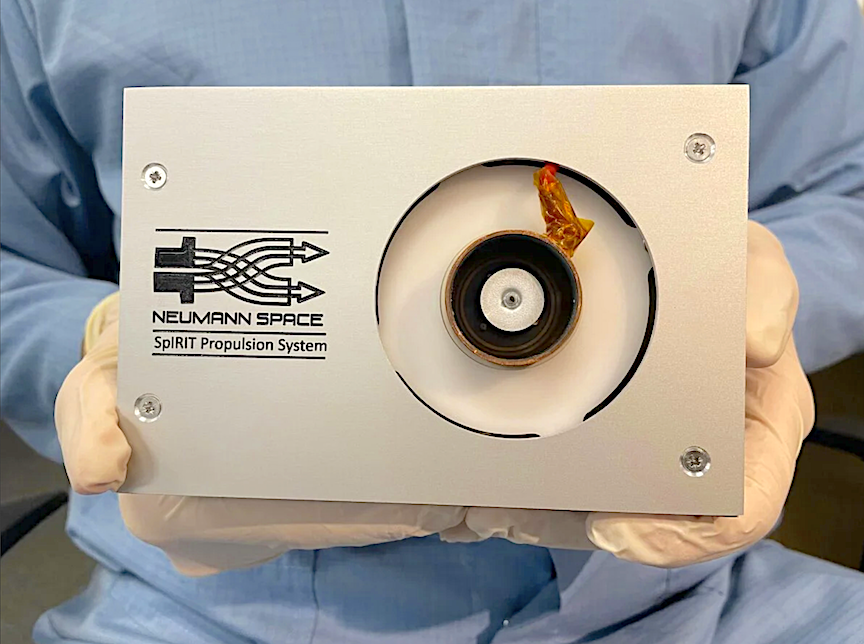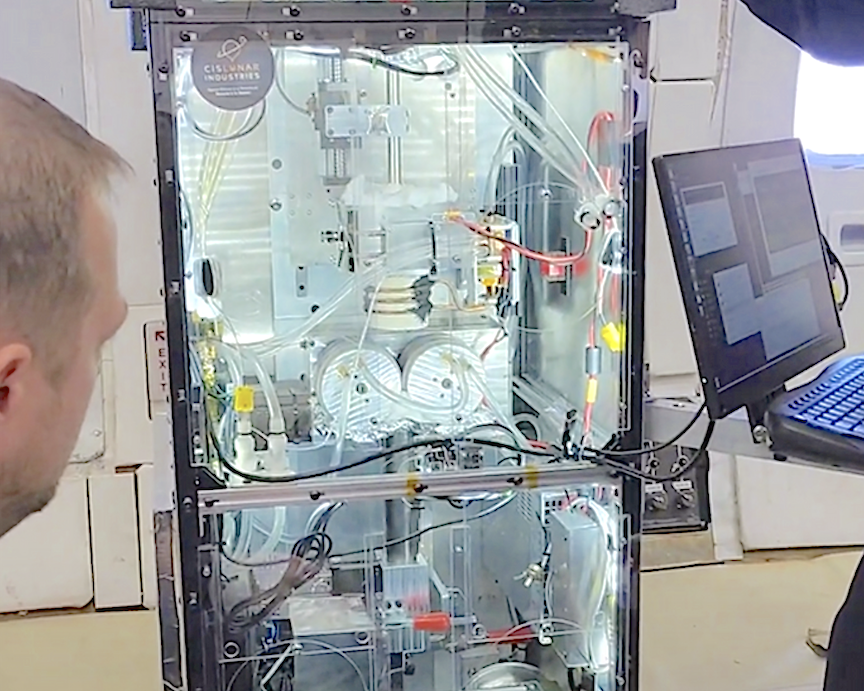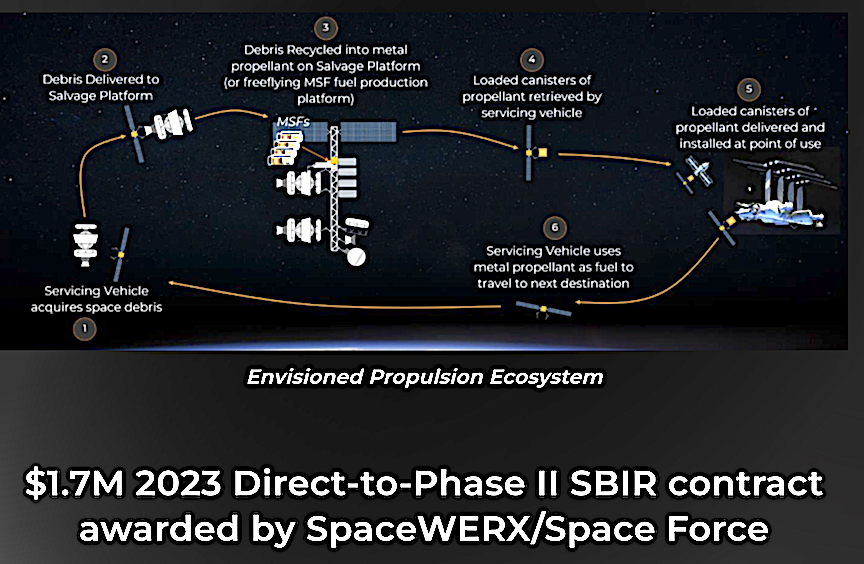
Neumann Space, an emerging Australian space company, has entered into an agreement to deliver its world leading propulsion system, the Neumann Drive®, to Colorado-based CisLunar Industries, a designer and manufacturer of Modular Space Foundries, to further a U.S. Space Force-funded project that will create a circular propulsion ecosystem, the companies announced today.
The USD $1.7 million project led by CisLunar Industries, and including industry partners such as Astroscale U.S. and Colorado State University, is focused on operationalizing the recycling of metal in space to create metallic fuel for propulsion that will enable enhanced and sustainable satellite mobility.

Recycling technology takes recovered space debris and reprocesses it into standardized metal feedstock in the form of rod, wire filament, and other useful geometries, as well as propellant.
The Neumann Drive® was selected for integration into this project due its unique propulsion technology that uses solid metallic propellant. Neumann Space has previously conducted a series of tests demonstrating that its patented pulsed cathodic arc thruster technology can use in-space recycled metal as fuel.

Neumann Space’s CEO, Herve Astier said, “Our company’s mission is to enable the sustainable economic development of space, and we are proud that our propulsion system will play a role in this project as it seeks to create the foundations for a new circular economy in space.”
“The supply agreement with CisLunar Industries represents the first commercial sale and first export of the Neumann Drive® and we are confident that this milestone marks the beginning of an accelerated role for our company in providing off-the-shelf, safe and easy-to-integrate electric propulsion systems to improve mobility in space,” he said.
CisLunar Industries’ CEO, Gary Calnan, said, “As the industrial in-space economy accelerates and as the space domain becomes more contested, the Space Force has a need to be able to maneuver without regret. Our Modular Space Foundry and our partners’ capabilities allow us to turn space debris into propellant for the Neumann Drive®, which can then be used to retrieve more space debris, support the Space Force SAML (Space Access, Mobility, and Logistics) mission, and provide materials for in- space manufacturing and construction. With the Space Force’s foresight to invest in our combined capabilities, what we are creating now lays the foundation for a full-scale industrial economy in space.”
